Contents
~ Louis I. Kahn ~

The ACSF/2A Organizing Committee is pleased to announce an extension of the Competition Registration and Submission Schedule, as well as the Venue for the Awards Ceremony.
New Registration and Submission deadline: June 1, 2026.
In response to recent challenges in the Middle East and temporary network disruptions that affected outreach during June and July, the ACSF/2A International Design Competition, officially launched on June 1, 2025, has extended its schedule to encourage broader global participation, fairness, and inclusive collaboration.
Participants who have already registered and begun developing their concepts are encouraged to refine their designs and 500-word essay and submit them by the new deadline, along with the required fee.
This additional time supports deeper conceptual design engagement allowing both participants and jurors more opportunity for thoughtful reflection, evaluation, and recognition of visionary projects shaping the future of the built environment and human life on earth.
The Awards ceremony will coincide with the ACSF 16 Symposium at Kyoto University, Japan hosted by the Kyoto University Institute for the Future of Human Society from June 2–7, 2027.
© ACSF International Design Competition (IDC) 2025
Our Vision Of a Better World obliges us to encompass a deep comprehension of the critical historical impacts that have affected the world in modern times. Those causal forces have radically transformed the world, which today has brought the whole earth and humankind to the brink of untold ecological, social, and psychological disaster. For the survival of the whole of nature and the well-being of humanity, we are obliged to lay the foundations for a renewed awareness of the realities and purpose of existence to transform into a civilization that will replace the dehumanized world that is now disintegrating and disappearing before our very eyes.
The built environment’s lengthy history as a communicative and affective media portends its enduring capacity to serve the highest ideals and address the most vexing problems. Indeed, the built environment was often believed to provide portentous places for personal improvement and, by extension, the evolution of culture. It still has that promise and potential.
Through this international design competition, we seek an alternative path to this dead end - a vision of organic exuberance, human delight and flourishing that lies waiting in the paradigm of “Transcendent Design and the Space In-Between.”
“Transcendence Design” is the spatial embodiment of reality beyond the tangible. It seeks to manifest the unseen, inviting us into a realm of heightened awareness where space becomes a bridge between the material and ineffable (metaphysical, spiritual), prompting reflection, awe, or connection to something greater than oneself.
“The Space In-Between” is a familiar concept to many cultures and philosophies — in Buddhism, Sunyata is the voidness that constitutes ultimate reality, in Sufism, the Barzakh is the liminal world of the creative Imagination, in Japanese, Ma is the gap or interval that exists between objects, situations, or relationships, in Depth Psychology, self-realization is seen to take place within a liminal space. Therefore, it is more than simply other functional spaces, more than a physical boundary or threshold — “The Space In-Between” is an invitation to explore the experience of “Transcendence.”
The Architecture, Culture, and Spirituality Forum (ACSF) has been exploring just such a path for over two decades. ACSF, with its international community of scholars and practitioners in both Western and Eastern cultures, upholds that the design and experience of the built environment can assist the spiritual development of humanity in the service of addressing the world’s most pressing problems.
On the fifth anniversary of the completion of extensive multi-cultural research on this subject, we launched the ACSF Declaration of Transcendent Human Habitat.
As an integral part of the competition conditions, we invite design submissions of unbuilt theoretical and conceptual projects that align with the ACSF Declaration of Transcendent Human Habitat and foster human and planetary flourishing, spiritual growth, and the experience of the transcendent within a sustainable environment for present and future generations.
Projects should align with the following ACSF Declaration Principles:
We profess a worldview that our tangible and intangible universe has a spiritual
dimension, and that this ineffable realm is central to pursuing, finding, appreciating, and
supporting life’s meanings. This spiritual dimension is conceived as an order in the
universe that is transcendent in terms of being beyond us at all levels and posited as
the ultimate source from which all beings rise, depend on, and return to.
We recognize the three principles of contemplation, compassion, and moderation as the perennial and complementary core values and intentions common to the spiritual practice of many world traditions that can serve as pillars to cultivate human spirituality in the process of envisioning, planning, designing, and realizing the built environment. The Contemplative principle aligns our inner, private self with the spiritually transcendent through a profound, personal sense of unity, while Compassion cultivates our empathy for the other and Moderation invokes self-restraint to foster a sustainable future existence.
The following seven interconnected and interdependent criteria are proposed for effectively engaging and steering public policy, development practice, urban planning, architectural design, and their implementation toward spirituality-inspired and nurturing built environments at scales ranging from the dwelling unit to the cluster, neighborhood, community, city, and region:
Eligible Project Types:
What, in your opinion, are the critical historical impacts and causal forces that have affected the world in modern times? How does your design address them?
What is your vision for the future of life on Earth? How does your design fulfil that vision?
How does your design engage with metaphysical, mythic, symbolic, imaginal, ontological, or metaphoric levels of meaning?
Describe any notable personal experiences of participating in this design competition. Have you noticed any changes in how you would now approach your work moving forward?
| Competition Announcement | June 1, 2025 |
|---|---|
| Registration Fee, Design & Essay Submission | June 1, 2026 |
| Jury Review & Announcement | December 1, 2026 |
| Award Ceremony & Symposium | June 2-7, 2027 |
| Closing Date for Q&A | February 1, 2026 |
The Awards Ceremony will now coincide with ACSF Symposium 16 Co-hosted with ACSF and by the Kyoto University Institute for the Future of Human Society, Japan in June 2027.
It is an honor to have a distinguished panel of esteemed international experts for this competition. Their diverse expertise and global perspectives bring valuable insight to the selection process, ensuring a fair and inspiring evaluation of the submissions.
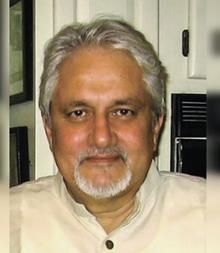
Prof. Hasan-Uddin Khan is an architect, writer, and educator. He graduated from the Architectural Association in London. Khan played a pivotal role in establishing the Aga Khan Award for Architecture and served as Editor-in-Chief of Mimar: Architecture in Development. He has taught at institutions including MIT, UC Berkeley, and Roger Williams University, where he became Distinguished Professor of the Architecture & Historic Preservation.
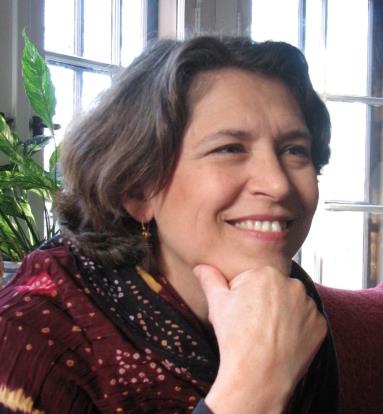
Dr. Ruggles is an American historian specializing in Islamic art and architecture. She holds the Presidential Humanities and Social Science Endowed Chair in Landscape Architecture at the University of Illinois, Urbana-Champaign. Her research examines the medieval landscape of Islamic Spain and South Asia and the complex interrelationship of Islamic culture with Christianity, Judaism, and Hinduism. Dr. Ruggles has authored award-winning books, including Gardens and Landscape, and Sites Unseen: Landscape and Vision.

Prem Chandavarkar is a prominent Indian architect and writer. He is the Managing Partner of CnT Architects, an award-winning and widely published architectural practice based in Bengaluru, India, with a history dating back across generations to being Bengaluru’s first architectural firm. He earned his architectural degrees in New Delhi, and the University of Oregon. Chandavarkar is a former Executive Director of the Srishti Manipal Institute of Art, Design & Technology in Bengaluru, and a former Board of ACSF.
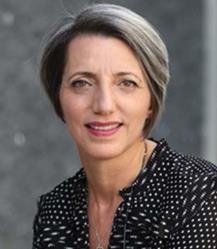
Sumaya Dabbagh is a prominent Saudi architect educated in the UK, who founded Dabbagh Architects in Dubai in 2008. Her work emphasizes cultural identity, memory, and belonging, evident in projects like the Mleiha Archaeological Centre and the Gargash Mosque. Dabbagh served as Chair of the RIBA Gulf Chapter from 2015 to 2019 and has been recognized with awards such as “Principal of the Year” at the Middle East Architect Awards.
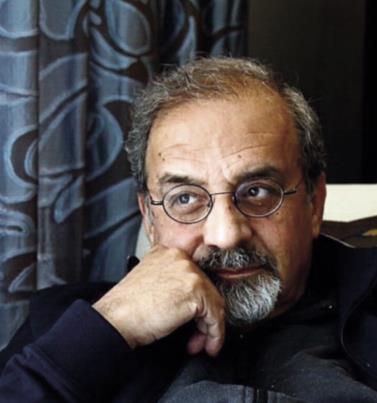
Rasem Badran is a renowned architect blending modern design Islamic heritage. He founded Dar Al-Omran in 1981 and has completed significant projects like the Grand Mosque of Riyadh, Al-Bujairi Development KSA, and the Abu Dhabi Courts Complex. Badran received the Aga Khan Award for Architecture in 1995 and the Tamayouz Lifetime Achievement Award in 2019, recognizing his contributions to modern Islamic architecture.
All entries will be reviewed by a jury composed of internationally recognized individuals.
The best entries will be selected by considering how they embody the following main two items expressed by the submission’s alignment with most or all its seven interconnected and interdependent criteria:
Total Prize Fund: $10,000 USD
3 Winners & 4 Honorable Mentions
Quality Trophies & Citations
Monetary Awards:
Global Promotion: The award-winning projects will be documented and widely promoted through 2A Media and Magazine, the ACSF website, and various other channels.
In Order to Submit your documents, you must pay fee here
(USA, Canada, United Kingdom, nations of the European Union, Singapore, Japan, South Korea, Australia, & New Zealand)
Registration Start: June 1, 2025
Interested applicants must register before September 27, 2025.
Competition Conceptualized by The Architecture, Culture, and Spirituality Forum (ACSF) Team
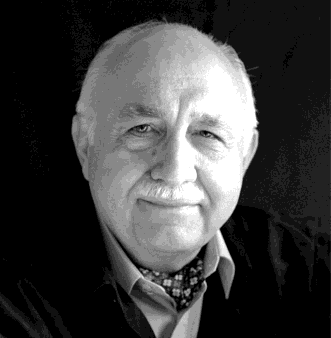
Nader Ardalan
United States
Nader Ardalan is a senior practicing architect, theorist, and President of Ardalan Assoc. He holds a Master of Architecture from the GSD at Harvard University and a Bachelor of Architecture from Carnegie-Mellon University. He has been a visiting critic at Harvard, Yale, MIT, and Tehran University; co-author of "Sense of Unity" and "Gulf Sustainable Urbanism"; and a founding member of the Steering Committee of one of the most prestigious Aga Khan Awards in architecture.

Nevine Nasser
United Kingdom
Dr. Nasser is a practicing architect and academic scholar exploring the intersection between sacred space and spiritual experience. She holds a PhD in Islamic sacred architecture from the King’s School of Traditional Arts, a Master of Architecture in Sustainable Architecture from CAT at the University of East London, and completed her architectural degree at Cairo University. Her work examines the relationship between creative and spiritual practices.
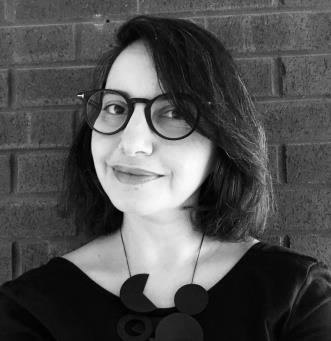
Nesrine Mansour
United States
Dr. Mansour, Ph.D. is an Assistant Professor of Architecture at the University of Colorado Boulder. She specializes in the intersection of architecture, digital media, and sacred spaces with a focus on AI and Virtual Reality. A research fellow at Princeton’s Center for Theological Inquiry (2020/21), she has published widely and co-chaired the 14th ACSF Symposium (Istanbul, 2024). She is also working on an edited book on Religion and AI: Theoretical and Empirical Approaches.

Nooshin Esmaeili
Canada
Nooshin Esmaeili is a registered architect, sessional instructor, and PhD candidate at the University of Calgary in Canada. Her research explores the spatial poetics of architecture, its existential qualities, and the link between Persian architecture, Sufism (Hidden & Manifest), and self-transcendence. Bridging Design, Architecture, environmental psychology & neuro-architecture, Nooshin's research examines how the built environment shapes overall human flourishing.
2A Magazine Team
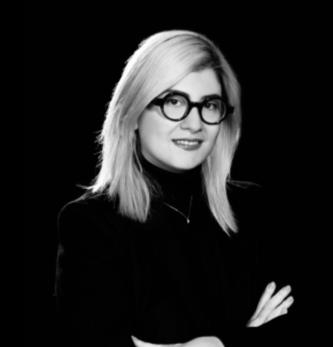
Mahsa Masoudi
Iran
Mahsa Masoudi is a practicing architect and scene designer, working across architecture and interdisciplinary projects. She holds a Master of Architecture from Pennsylvania State University and studied Scenic Design at UNCSA as a Fletcher Fellow. She also explored Asian architecture at Sogang University in Seoul. Mahsa previously worked at Richard Meier & Partners in New York and now teaches at Iran University of Art, while co-founding StudioSe, an architecture and design practice based in Tehran.

Ahmad Zohadi
United Arab Emirates
Ahmad Zohadi is a visionary leader and the Founder & Director of the UNESCO Club of Architecture & Art. His ideas encompass global missions in architecture, culture, and advanced theoretical research in multimedia fields, including filmmaking. As the Founder of 2A Magazine, he envisions it as more than just a specialized art and architectural media platform—he sees it as a global amplifier that elevates the voices of architects and artists, fostering cross-cultural dialogue and innovation globally.
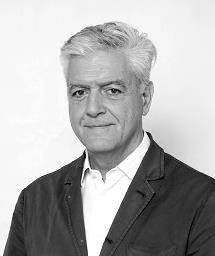
Massimo Imparato

Dr. Constantin Spiridonidis

Sandra Woodall

Bakhti More